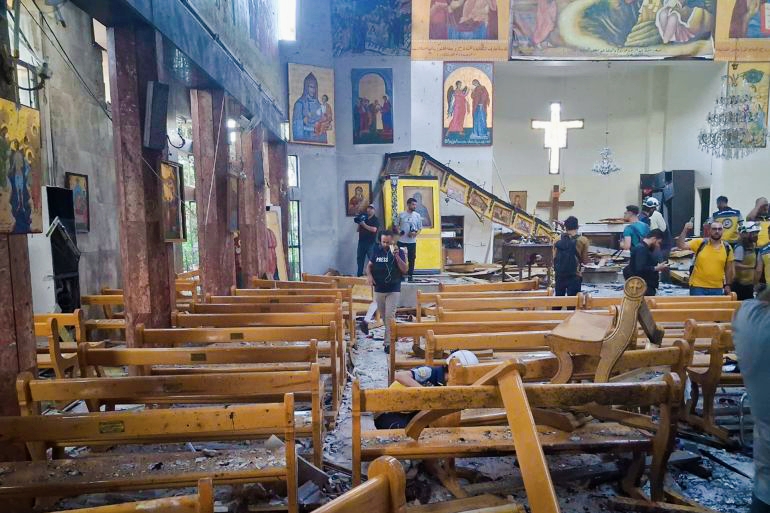Syrian Government: Church of Mar Elias Bombing an Attempt to Undermine National Stability
June 23, 2025133 ViewsRead Time: 3 minutes

Font Size
16
A suicide bomber detonated himself inside the Church of Mar Elias in the Dwaila neighborhood of the Syrian capital, Damascus, resulting in dozens of casualties, including fatalities and injuries.
Immediately, the internal security forces imposed a strict security cordon around the blast site, while rescue teams began transporting the wounded and retrieving the victims from inside the church.
The suicide attack resulted in a large number of casualties, with initial field reports indicating around 50 dead and injured.
Later, the Syrian Ministry of Health announced that the toll had risen to 22 dead and 59 injured, most of whom were civilian women and children who were praying inside the church at the time of the explosion.
According to the Syrian Interior Ministry, as reported by Reuters, the perpetrator of the attack was a member of the Islamic State (ISIS), officially confirming the organization's responsibility for this terrorist attack.
This attack comes after a long absence of similar incidents considered the first of its kind in Damascus since the fall of the Bashar al-Assad regime in December 2024, raising suspicions about the presence of dormant cells of the organization in the capital.
In the first official statement, the Syrian Minister of Culture said, "With deep sorrow and grief, we mourn the victims of the Church of Mar Elias bombing in Dwaila," adding that the only beneficiary of this cowardly act is the parties that do not want stability in Syria.
The Syrian Interior Minister emphasized that "these terrorist acts will not deter the efforts of the Syrian state in achieving civil peace," offering his condolences to the families of the innocent victims.
The government and ministers, including the Interior and Information Ministers, condemned the attack, considering it a "cowardly" act aimed at undermining national security and targeting the unified Syrian identity, affirming the state's determination to protect coexistence among all segments of society.
Several countries also expressed their condemnation, along with the United Nations, which called for a prompt international investigation and intensified efforts to protect places of worship in the country.
In a precautionary step, the Syrian Foreign Ministry called on ambassadors and heads of diplomatic missions not to visit the terrorist blast site without prior official approval, stating that "what happened was an assault on the entire unified Syrian identity," referring to the targeting of a religious component within the Syrian social fabric.
This attack highlights the security challenges facing the transitional government amid attempts to contain the influence of armed groups, especially ISIS, and to restore stability in Damascus and Syria as a whole.